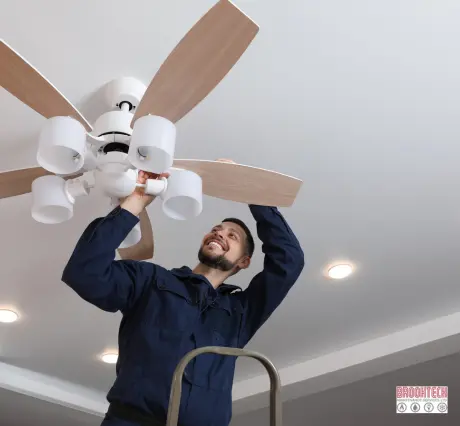Maintenance Considerations for Dementia-Friendly Residential Homes
When managing a residential home that accommodates clients with dementia, it’s essential to recognise the unique challenges and needs associated with this condition. Dementia affects not only memory but also behavior, cognitive functions, and sensory perceptions. As such, maintenance and renovations in these environments must be approached with sensitivity and care. Below are key considerations for maintaining a dementia-friendly residential home and why it’s crucial for the well-being of your clients.
Understanding the Needs of Dementia
People with dementia require an environment that supports their safety, comfort, and cognitive health. Unlike typical residential home clientss, those with dementia are more susceptible to confusion, agitation, and disorientation, especially in unfamiliar or poorly maintained environments. Therefore, maintenance practices should prioritise these aspects to create a stable, calming environment.
Key Maintenance Considerations for Dementia-Friendly Residential Homes
1. Routine and Predictability
Routine and predictability are crucial for clients with dementia. Regular maintenance activities, such as cleaning, repairs, and inspections, should be scheduled to minimise disruption to the clients’ daily routines. Introducing sudden changes or conducting loud, intrusive maintenance work without notice can cause unnecessary stress and anxiety for those with dementia. Ensuring that these activities are done discreetly and consistently helps maintain a sense of normalcy and security.
2. Safe and Accessible Spaces
Safety is paramount in a dementia-friendly residential home. Maintenance checks should frequently assess the condition of flooring, handrails, and lighting. Uneven floors, poor lighting, or loose handrails can increase the risk of falls, which are particularly dangerous for elderly clients with dementia. Additionally, consider the accessibility of outdoor spaces—well-maintained, secure gardens can provide therapeutic benefits, offering residents a safe environment to enjoy fresh air without the risk of wandering off.
3. Sensory Considerations
Clients with dementia often experience heightened sensitivity to sensory stimuli. Maintenance should ensure that lighting is even and non-glaring, avoiding harsh shadows that can cause confusion. Similarly, colours used in the residential home should be soothing and not overly bright, as certain colours can be overwhelming or confusing. When renovating, choose non-reflective, matte surfaces to prevent visual disturbances.
4. Sound Management
Noise levels should be carefully managed in residential homes catering to dementia clients. Unexpected loud noises from maintenance activities can cause agitation or fear. Regularly check that noise levels from HVAC systems, plumbing, and other equipment are kept to a minimum. When possible, schedule noisy activities during times when residents are less likely to be affected, or consider temporary relocation of clients to quieter areas during major maintenance work.
5. Wayfinding and Orientation
Effective wayfinding is essential in helping people with dementia navigate their environment independently. Maintenance tasks should include the regular updating and clear visibility of signage. Signs should be simple, with clear lettering and pictograms, and placed at eye level. Additionally, ensuring that pathways are free of obstacles and well-maintained will help residents move around safely and confidently.
Renovating with Dementia Clients in Mind
Renovations in a care home with dementia clients require careful planning. It’s important to consider how changes might impact the clients’ daily lives. For example, significant alterations to the layout of common areas can be disorienting. When undertaking renovations:
- Involve the Care Team: Work closely with caregivers and dementia specialists to ensure that changes are beneficial and not disruptive to the residents.
- Phase the Work: If possible, phase the renovation work to minimise disruption, keeping essential areas like dining and communal spaces operational throughout the process.
- Communication is Key: Clearly communicate any upcoming changes to the staff and clients’ families, explaining how the work will improve the clients’ quality of life.
The Role of Brooktech in Maintaining Dementia-Friendly Environments
At Brooktech, we understand the unique needs of residential homes that serve clients with dementia. Our approach to maintenance and renovation is rooted in creating safe, comfortable, and calming environments. We offer:
- Comprehensive Maintenance Plans: Tailored to meet the specific needs of dementia residential homes, ensuring all systems are functioning optimally and safely.
- Sensitive Scheduling: We plan our maintenance activities to minimize disruption to residents, respecting their routines and comfort.
- Expert Guidance: Our team is experienced in working with care homes, providing insights and solutions that enhance the living conditions of residents with dementia.
Maintaining a residential home for clients with dementia requires a thoughtful approach that prioritises their safety, comfort, and well-being. By focusing on routine, sensory considerations, and safety, you can create an environment where clients feel secure and supported. Brooktech is here to help you achieve this with our expert maintenance services, ensuring that your residential home remains a welcoming place for all clients, contact us today to find out how we can help you with your residential home maintenance.









